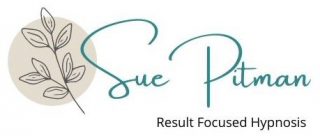Source: The Express
Complementary therapies can be free on the NHS for patients recovering from serious illnesses but it’s up to you to find out what’s on offer. Joanne O’Connell reports
When Julie Wray was told last June that she had breast cancer, she faced six months of chemotherapy to destroy the cancer cells. “I was so anxious about the chemo sessions that I used to shake and cry all the way through, and then be violently sick when I got home, ” says Julie, 49, who lectures in nursing.
Fortunately, Julie discovered that the Christie Hospital in Manchester, where she was being treated, had a complementary therapies unit.
After asking about the services, she was offered free sessions of hypnotherapy.
“I was a bit sceptical at first, ” says Julie, who lives in Cheadle, Cheshire. “But I decided to give it a go because, at the very least, there wouldn’t be side-effects.” During her next chemotherapy session, Julie was given hypnotherapy and a massage. “At the end of the session, I couldn’t believe the chemotherapy hadn’t been stressful. I didn’t even suffer the usual nausea,” she says.
She then had further treatments to help her manage her anxiety. “By the end, I almost looked forward to having chemo. I’m convinced the complementary therapies helped me accept I had cancer and cope with the treatments.”
Julie is one of a growing number of patients able to access free complementary therapies on the NHS.
It’s an area that’s increasingly recognised by people keen to access more natural treatments, says Kim Lavely, chief executive of The Prince’s Foundation For Integrated Health (FIH), founded by the Prince of Wales.
“It’s the public that’s really driving forward the growth in complementary services on the NHS, ” she says. “People want a more ‘whole person’ approach to healthcare.” Over three quarters of people said they would like complementary therapies available on the NHS, according to a study by the Future Foundation.
So it’s no surprise that the five NHS homeopathic hospitals in the UK – in London, Liverpool, Bristol, Glasgow and Tunbridge Wells in Kent – are in demand.
The hospitals, which operate on a GP referral system, offer services to patients suffering from anything from asthma, eczema and digestive problems to menstrual and menopausal problems.
“There are pockets all over the country where patients are offered osteopathy, chiropractors and acupuncture, ” says Lavely.
Sessions with an acupuncturist or chiropractor are usually given to patients suffering chronic pain, such as backache, says Dr Jeremy Tankel, a GP based in Salford. Patients can sometimes access this from their GP or from a pain management unit. However, some hospitals and clinics offer access to an even wider range of therapies – including aromatherapy, massage, hypnotherapy, reiki, reflexology and sessions with a healer. Many of these sessions are free on the NHS. Others are run by charities.
The Government has also been supportive of providing access to alternative treatments. With a GBP 900,000 grant from the Department of Health, the FIH is establishing regulatory bodies for complementary healthcare practitioners to ensure safety and quality. For example, the Aromatherapy Council was established in December 2006. Many pregnant women and new mums benefit from the growing number of maternity services that offer complementary therapy during and after labour.
At West Suffolk Hospital NHS Trust, for example, all midwives are given basic training in aromatherapy massage, with five trained to diploma level. The service is offered to all women in labour, with the take up rate at around 60 per cent. Sheila Cornwall, a midwife who works for the Trust, says: “We find that aromatherapy helps women to relax, which means they’re more likely to experience a natural birth.” Aromatherapy and massage are seen as “complementary” to the usual pain relief methods offered to women in labour, says Sandy Juff, a midwife at Nottingham University Hospitals Trust.
“Most people ask for the service these days. But if they don’t know about it, we offer it to them and the majority want to give it a go, ” she says. The problems come when patients want services unavailable in their area, says Pam Prentice, of the charity Developing Patient Partnerships. “It all depends on local provisions, ” says Prentice. “You can’t demand to be offered complementary therapies on the NHS. It’s down to the discretion of your health professional, such as your GP, to offer them and even if he or she is supportive of your wishes there may simply not be any on offer in your area.”
How to get complementary treatment on the NHS:
There are great services offering complementary treatments on the National Health Service, says Katherine Murphy, spokesperson for the Patients Association, but she warns that you may not be offered them.
“It’s very much up to the individual patient to ask for the treatments, ” she says. “Patients expect to be offered any treatment available to them, but in many cases, this simply doesn’t happen even when the services are available.”
There is no central database on the treatments available across the UK, although the Prince’s Foundation for Integrated Health (FIH) is in the process of collating data that will help build up a better picture of the services available. To find out what’s available in your area, it’s best to ask your GP, midwife, or hospital consultant. “You may also find treatments are available from a pain management clinic in your area, if your GP can’t directly offer you the service, ” says Dr Jeremy Tankel.
What if you are refused?
You don’t have a right to complementary treatments on the NHS but if you know there are services in your area, don’t be put off straightaway. “You could ask for a second opinion from another GP at your practice, ” suggests Lavely. “You may find they are more responsive although it’s not always the case.” If you do experience difficulty obtaining treatment, you may be able to get help and advice from the Patients Association (0845 608 4455 begin_of_the_skype_highlighting 0845 608 4455end_of_the_skype_highlighting, patientsassociation.org.uk) or the NHS Patient Advice and Liaison Service (pals.nhs.uk). For more information about treatments available on the NHS, see the Complementary Healthcare guide for patients available on the FIH website (fih.org.uk).
Original Link: http://www.express.co.uk/posts/view/2118



